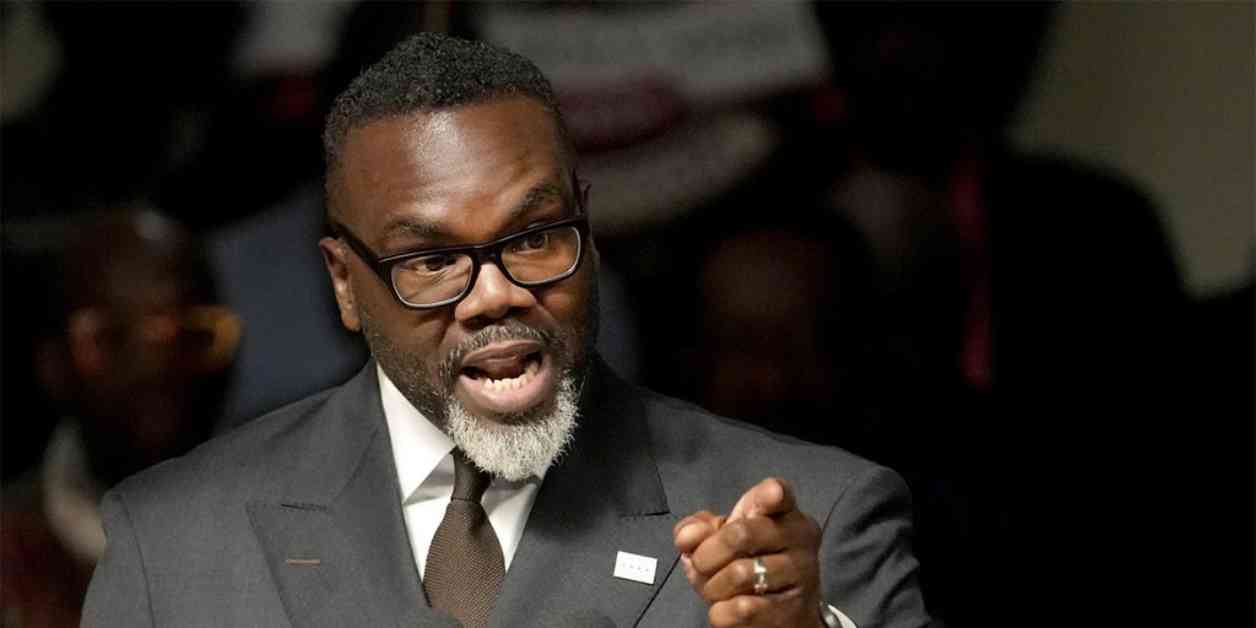Invoices and receipts from the administration of Chicago Mayor Brandon Johnson have sparked concerns over extravagant spending as the city grapples with a nearly $1 billion budget shortfall. According to documents obtained by NBC 5, the city spent over $80,000 to renovate and redecorate an office in the Chicago Cultural Center for the first lady, Stacie Johnson.
The work order requests for the renovation began in February and continued through August of the same year, involving electricians, carpenters, and painters on the city’s payroll. These workers accumulated more than 350 hours of labor, amounting to a cost of over $25,000. Additionally, the city reportedly paid more than $43,000 for furniture, including a $2,200 office chair and a $4,400 desk labeled as the “First Lady’s Desk” on the document. Another $4,600 was spent on a desk for a staffer and over $8,300 on two club chairs.
Despite facing questions about the optics of such spending while considering layoffs of city workers to reduce costs, Mayor Johnson defended the renovations by stating that the Cultural Center has historically provided office space for dignitaries, including first ladies. He emphasized that investing in people remains a priority for his administration, focusing on initiatives like hiring young people for summer jobs, building affordable housing, and supporting schools with counselors and social workers.
When pressed about the city’s budget shortfall and the need for a plan to address it, Johnson redirected the conversation to long-standing structural issues in Chicago’s finances. He expressed a commitment to addressing these challenges by reimagining how resources are allocated to benefit communities in need.
While Mayor Johnson’s office did not respond to requests for comment, the administration’s spending on office renovations has raised concerns among residents and city officials. With a significant budget deficit looming, the debate over fiscal responsibility and investment priorities in Chicago continues to be a point of contention.
In the midst of economic uncertainties and calls for financial accountability, the decisions made by city leaders regarding expenditures and resource allocation will have far-reaching implications for the future of Chicago and its residents. As the debate over budget priorities unfolds, the spotlight remains on Mayor Johnson and his administration to deliver effective solutions that address the city’s financial challenges while meeting the needs of its diverse population.


















